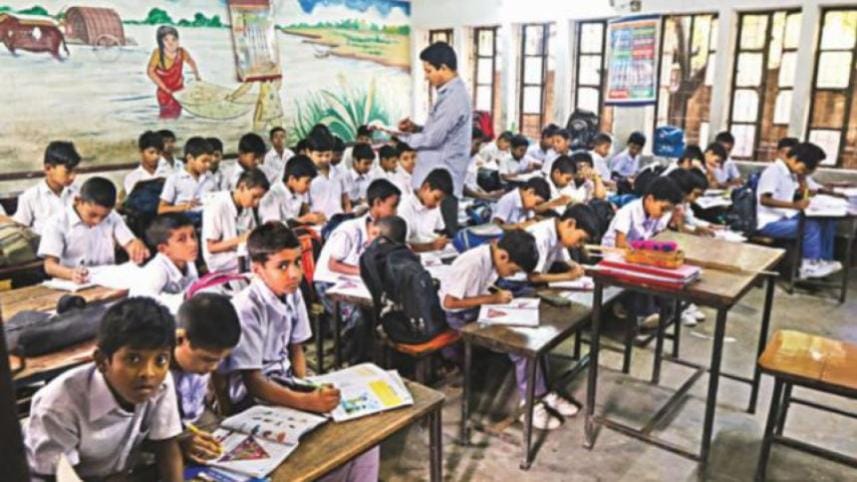Draft education act: Blitz against notebooks, private tuition

Bangladesh's first education act, which will be sent to the cabinet division next week for approval, orders a ban on printing, publishing and marketing notebooks and guidebooks -- a menace to the country's education system.
While students are given free textbooks by the government, they need to spend a sizeable amount to purchase a set of notebooks.
If found printing, publishing and marketing notebooks and guidebooks, the penalty is three years' imprisonment or a fine of Tk 5 lakh or both, as per the latest iteration of the draft, which was locked by the education ministry yesterday.
The draft, which is in line with the Education Policy of 2010, allows the publishing of supplementary books and education aid books but only after approval from the authorities concerned.
However, if a teacher is found pushing the supplementary books and education aid books on the students, it will be considered misconduct and disciplinary actions will be taken.
The draft forbids teachers from giving private tuition to students of their institution.
Another salient feature of the draft act, which has been in the works since 2011, is its ban on corporal punishment for schoolchildren and mental torture by teachers.
The draft will be sent to the cabinet division next week, said Abu Bakr Siddique, secretary of the secondary and higher education division, after the meeting yesterday where it was finalised.
This would be the fourth time that the ministry is forwarding the draft law to the cabinet division.
It was last sent in October last year and the cabinet division sent it back with observations and instructions for revisions, as in 2016 and 2017.
The back-and-forth is taking place over the provisions concerning guidebooks, notebooks and coaching centres, according to education ministry officials informed on the matter.
For instance, the version forwarded in December 2016 was met with a chorus of disapproval at the cabinet division as the ministry gave legitimacy to coaching and private tuition in the name of "shadow education".
The latest draft act also said a school may arrange additional classes for weaker students subject to the written consent of the parents.
The classes will be held either before or after school hours in line with the rules or policies framed by the government or a circular or executive order.
Coaching centres for helping jobseekers, admission seekers or English lessons will remain out of the purview of the law, said top education ministry officials.
The draft law seeks to take action as per the penal code if any irregularities are detected at non-government educational institutions run by trusts.
Asked why took more than 11 years to finalise the draft of the law, he was elusive. "I am also surprised that it took so many years," Siddique added.
Experts applauded the provisions in the draft act.
If the government can implement the provisions of banning guidebooks and control the private tuition, it would drastically reduce out-of-pocket expenditure, said KM Enamul Hoque, deputy director of Campaign for Popular Education.
In Bangladesh, the share of urban households paying for private tuition increased from 48 percent in 2000 to 67 percent in 2010 while the corresponding share of rural households doubled from 27 percent to 54 percent, according to the UNESCO 2021/2 Global Education Monitoring Report.
Overall, the average expenditure increased by 80 percent in real terms.
About 7 percent of families in Bangladesh have to borrow to send their children to school, the report added.




 For all latest news, follow The Daily Star's Google News channel.
For all latest news, follow The Daily Star's Google News channel.
Comments